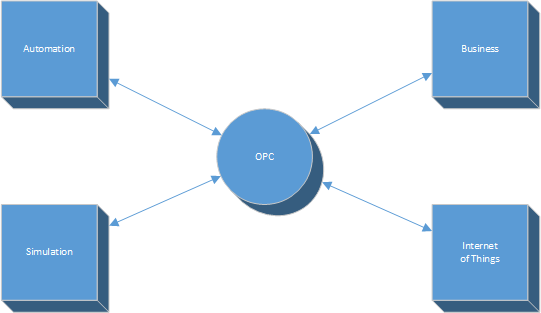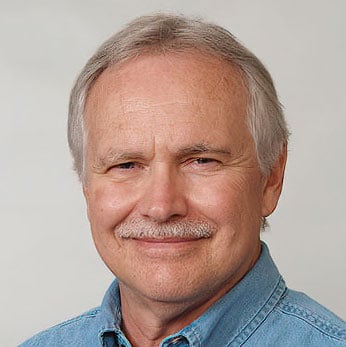The following technical discussion is part of an occasional series showcasing the ISA Mentor Program, authored by Greg McMillan, industry consultant, author of numerous process control books, 2010 ISA Life Achievement Award recipient and retired Senior Fellow from Solutia Inc. (now Eastman Chemical). Greg will be posting questions and responses from the ISA Mentor Program, with contributions from program participants.
Encouraged to ask general questions that would help share knowledge, Nikki Escamillas provided several questions on OPC. Initially, the OPC standard was restricted to the Windows operating system with the acronym originally designating OLE (object linking and embedding) for process control. OPC is the acronym for open platform communications that is much more widely used playing a key role in automation systems. We are fortunate to have answers to Nikki’s questions from a knowledgeable expert in higher level automation system communications, Tom Freiberger, product manager for industrial Ethernet in R&D engineering for Emerson Automation Solutions.
Nikki Escamillas is a recently added protégé in the ISA Mentor Program. Nikki is an Automation Process Engineer for Republic Cement and Building Materials – Batangas Plant. Nikki specializes in process optimization and automation control, committed in minimizing cost and product quality improvement through effective time management and efficient use of resources and data analytics. Nikki has an excellent knowledge and experience of advanced process control principles and its application to different plant processes more specifically on cement and building materials manufacturing.
Nikki Escamillas’ First Question
How does OPC work?
Tom Freiberger’s Answer
OPC is a client/server protocol. The server has a list of data points (normally in a tree structure) that it provides. A client can connect to a server and pick a set of data points it wishes to use. The client can then read or write to those data points. OPC is meant to be a common language for integrating products from multiple vendors. The OPC Foundation has a good introduction of OPC DA and UA at their website.
Nikki Escamillas’ Second Question
Does configuration of OPC DA differs from OPC UA?
Tom Freiberger’s Answer
Yes and no. The core concept of client/server and working with a set of data points remains consistent between the two, but the details of how to configure differ. The security configuration is the primary difference. OPC DA is based off of Microsoft’s DCOM technology, which means the security settings in the operating system are used. OPC UA runs on many operating systems and therefore the security settings are embedded into the configuration of the OPC application. OPC UA applications should use common terminology in their configuration, to ease integration between multiple vendors.
 Different areas that can be integrated with OPC.
Different areas that can be integrated with OPC.
Nikki Escamillas’ Third Question
Do we have any guidelines to follow when installing and configuring one OPC based upon its type?
Tom Freiberger’s Answer
Installation and configuration guidelines are going to be specific to the products being used. Some products are going to be limited on the number of data points that can be exchanged by a license or other application limitation. Some products may have performance limits. All of these details should be supplied in the documentation of the product.
Join the ISA Mentor Program
The ISA Mentor Program enables young professionals to access the wisdom and expertise of seasoned ISA members, and offers veteran ISA professionals the chance to share their wisdom and make a difference in someone’s career. Click this link to learn more about how you can join the ISA Mentor Program.
Nikki Escamillas’ Fourth Question
Could I directly make one computer to become OPC capable?
Tom Freiberger’s Answer
An OPC server or client by itself is just a means to transfer data. OPC is not very interesting without another application behind it to supply information. The computer you are attempting to add OPC to would need some other application to provide data. The vendor of that application would need to build OPC into their product. If the application with the data supports some other protocol to exchange data (like Modbus TCP, Ethernet/IP, or PROFINET) an OPC protocol converter could be used to interface with other OPC applications. If the application with the data has no means of extracting the information, there is nothing an OPC server or client can do.
Nikki Escamillas’ Fifth Question
Is it also possible to create a server to server communication between two OPC?
Tom Freiberger’s Answer
I believe there are options for this in the OPC protocol specification, but the details would be specific to the product being used. If it allows server to server connections, it should be listed in its documentation.
Additional Mentor Program Resources
See the ISA book 101 Tips for a Successful Automation Career that grew out of this Mentor Program to gain concise and practical advice. See the InTech magazine feature article Enabling new automation engineers for candid comments from some of the original program participants. See the Control Talk column How to effectively get engineering knowledge with the ISA Mentor Program protégée Keneisha Williams on the challenges faced by young engineers today, and the column How to succeed at career and project migration with protégé Bill Thomas on how to make the most out of yourself and your project. Providing discussion and answers besides Greg McMillan and co-founder of the program Hunter Vegas (project engineering manager at Wunderlich-Malec) are resources Mark Darby (principal consultant at CMiD Solutions), Brian Hrankowsky (consultant engineer at a major pharmaceutical company), Michel Ruel (executive director, engineering practice at BBA Inc.), Leah Ruder (director of global project engineering at the Midwest Engineering Center of Emerson Automation Solutions), Nick Sands (ISA Fellow and Manufacturing Technology Fellow at DuPont), Bart Propst (process control leader for the Ascend Performance Materials Chocolate Bayou plant), Angela Valdes (automation manager of the Toronto office for SNC-Lavalin), and Daniel Warren (senior instrumentation/electrical specialist at D.M.W. Instrumentation Consulting Services, Ltd.).
About the Author
Gregory K. McMillan, CAP, is a retired Senior Fellow from Solutia/Monsanto where he worked in engineering technology on process control improvement. Greg was also an affiliate professor for Washington University in Saint Louis. Greg is an ISA Fellow and received the ISA Kermit Fischer Environmental Award for pH control in 1991, the Control magazine Engineer of the Year award for the process industry in 1994, was inducted into the Control magazine Process Automation Hall of Fame in 2001, was honored by InTech magazine in 2003 as one of the most influential innovators in automation, and received the ISA Life Achievement Award in 2010. Greg is the author of numerous books on process control, including Advances in Reactor Measurement and Control and Essentials of Modern Measurements and Final Elements in the Process Industry. Greg has been the monthly "Control Talk" columnist for Control magazine since 2002. Presently, Greg is a part time modeling and control consultant in Technology for Process Simulation for Emerson Automation Solutions specializing in the use of the virtual plant for exploring new opportunities. He spends most of his time writing, teaching and leading the ISA Mentor Program he founded in 2011.




